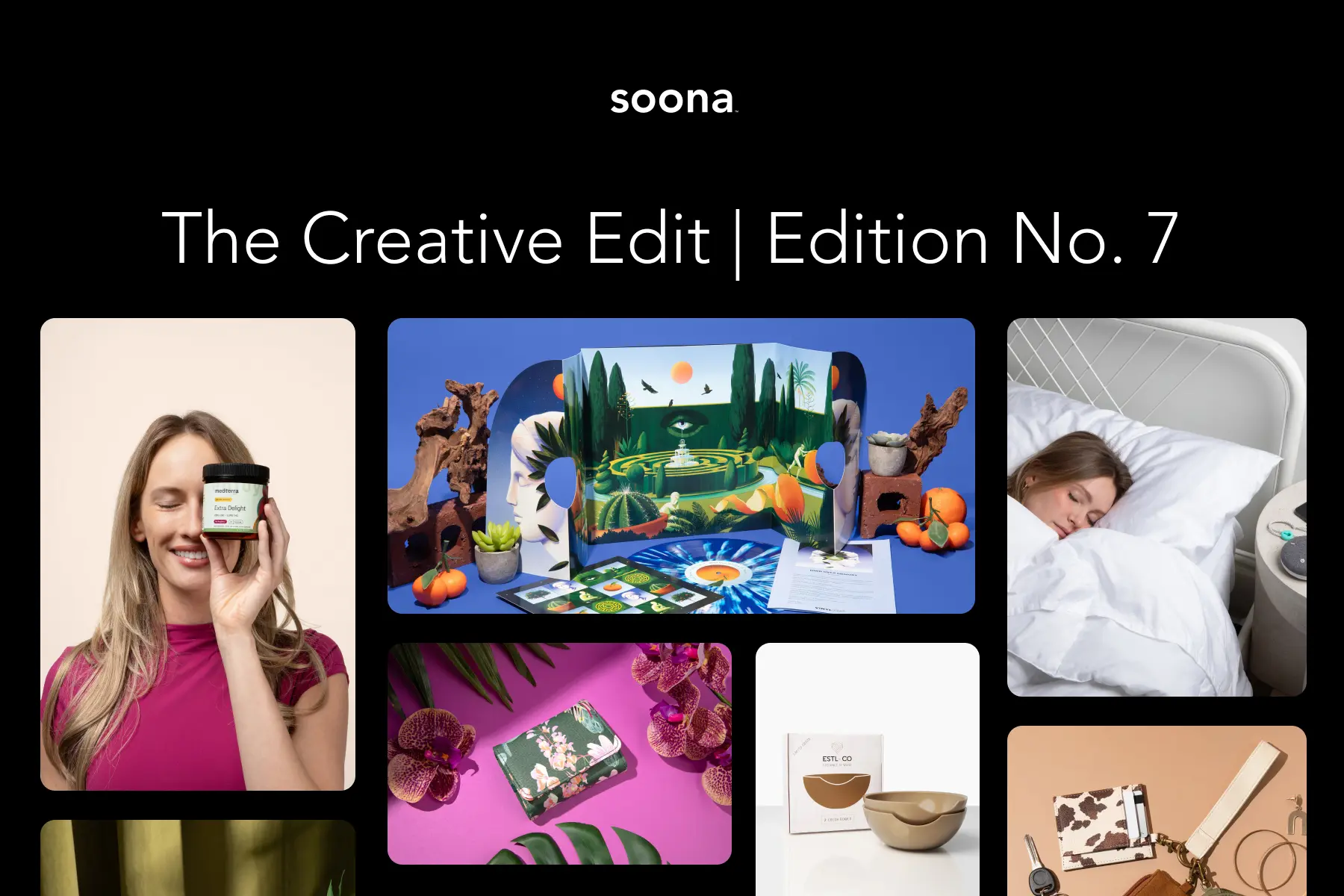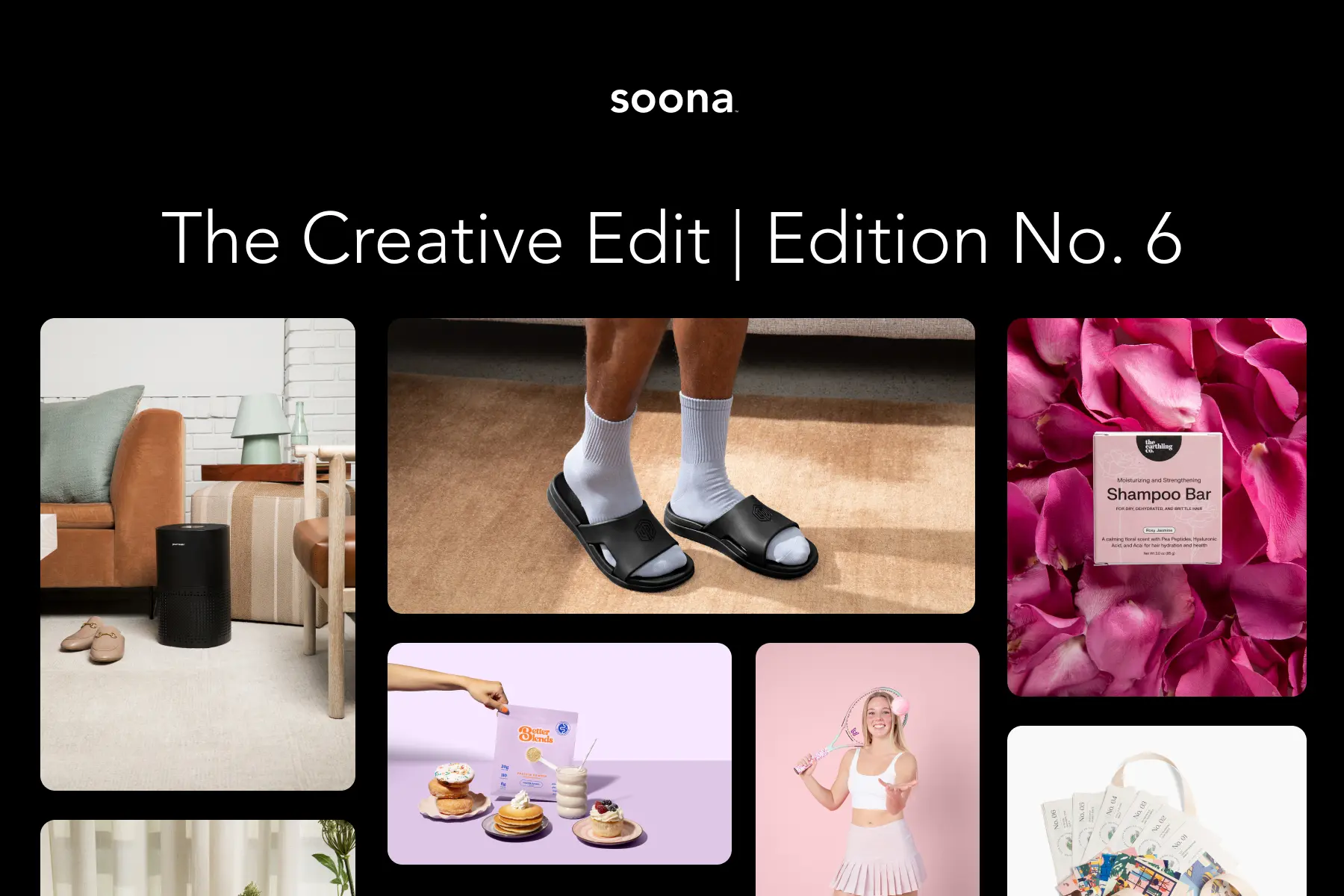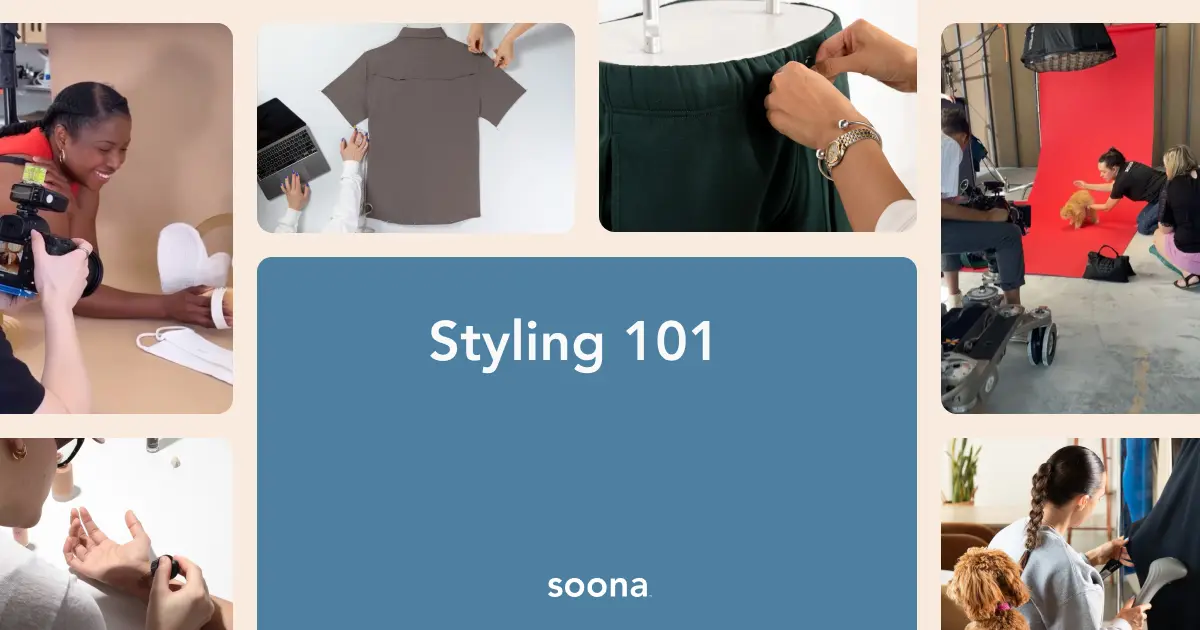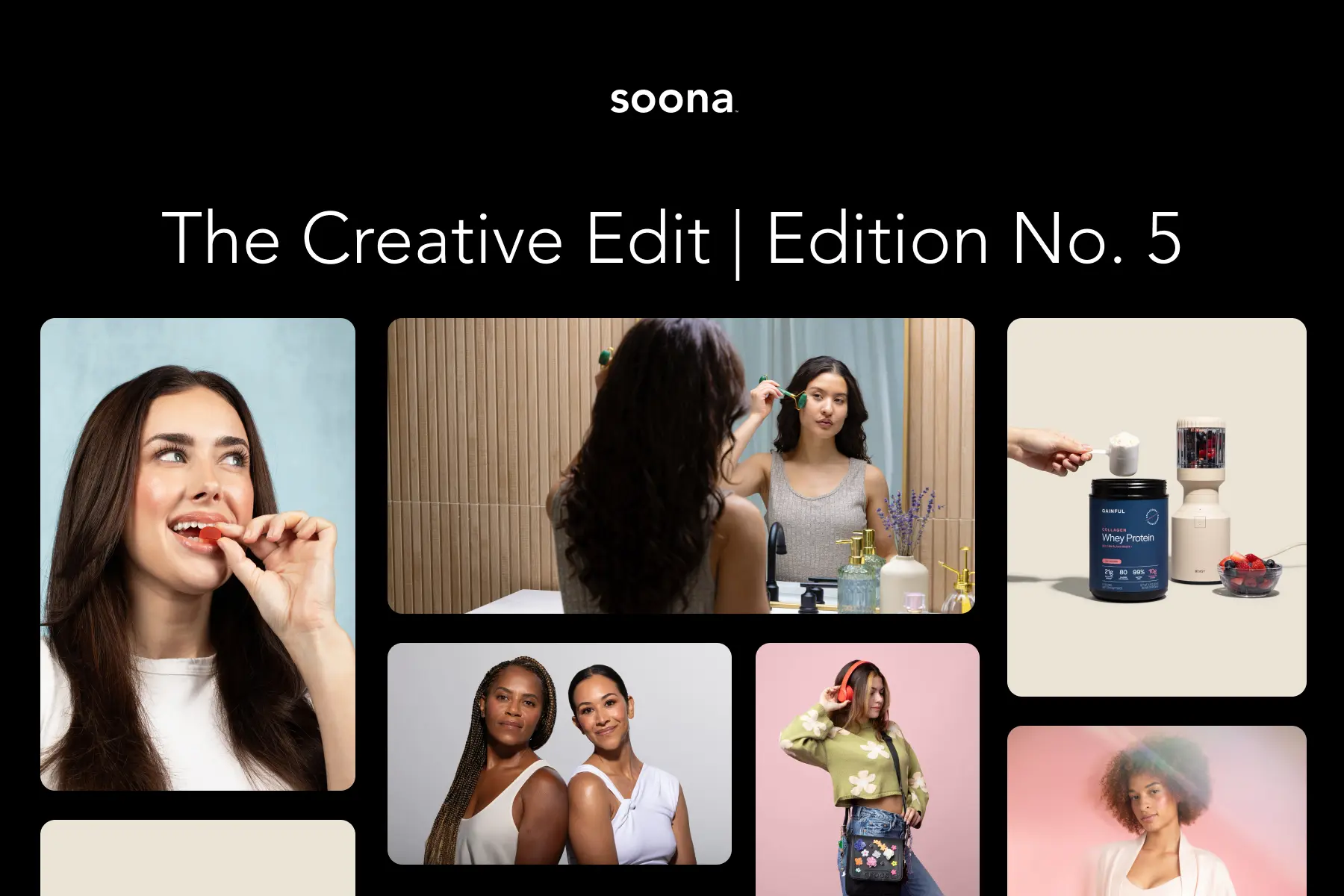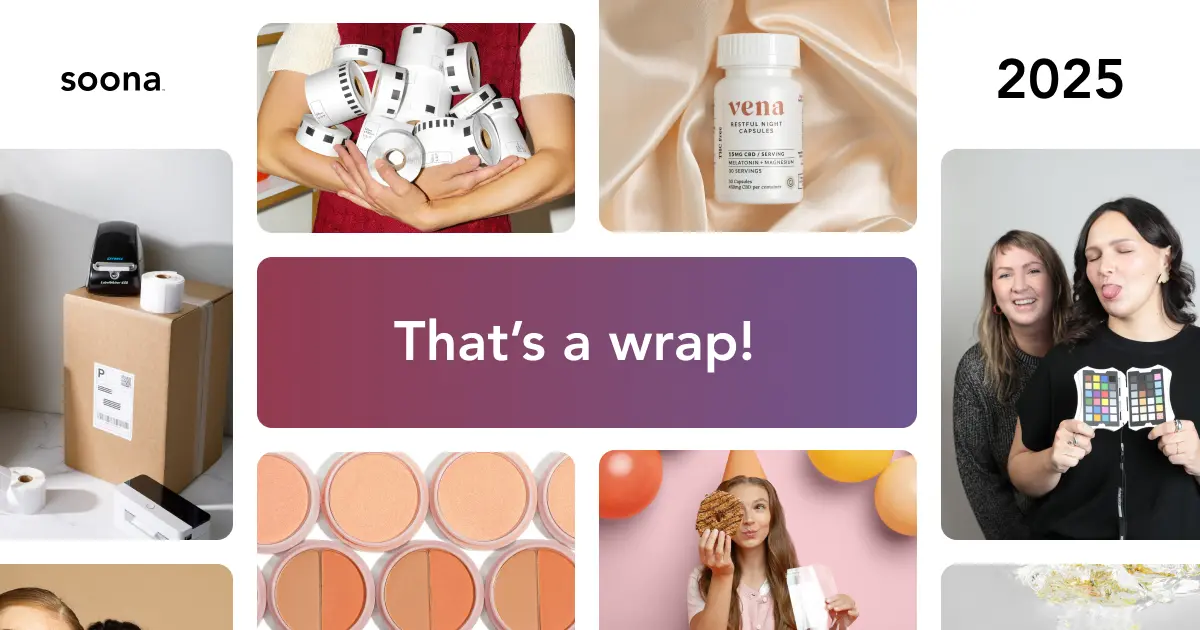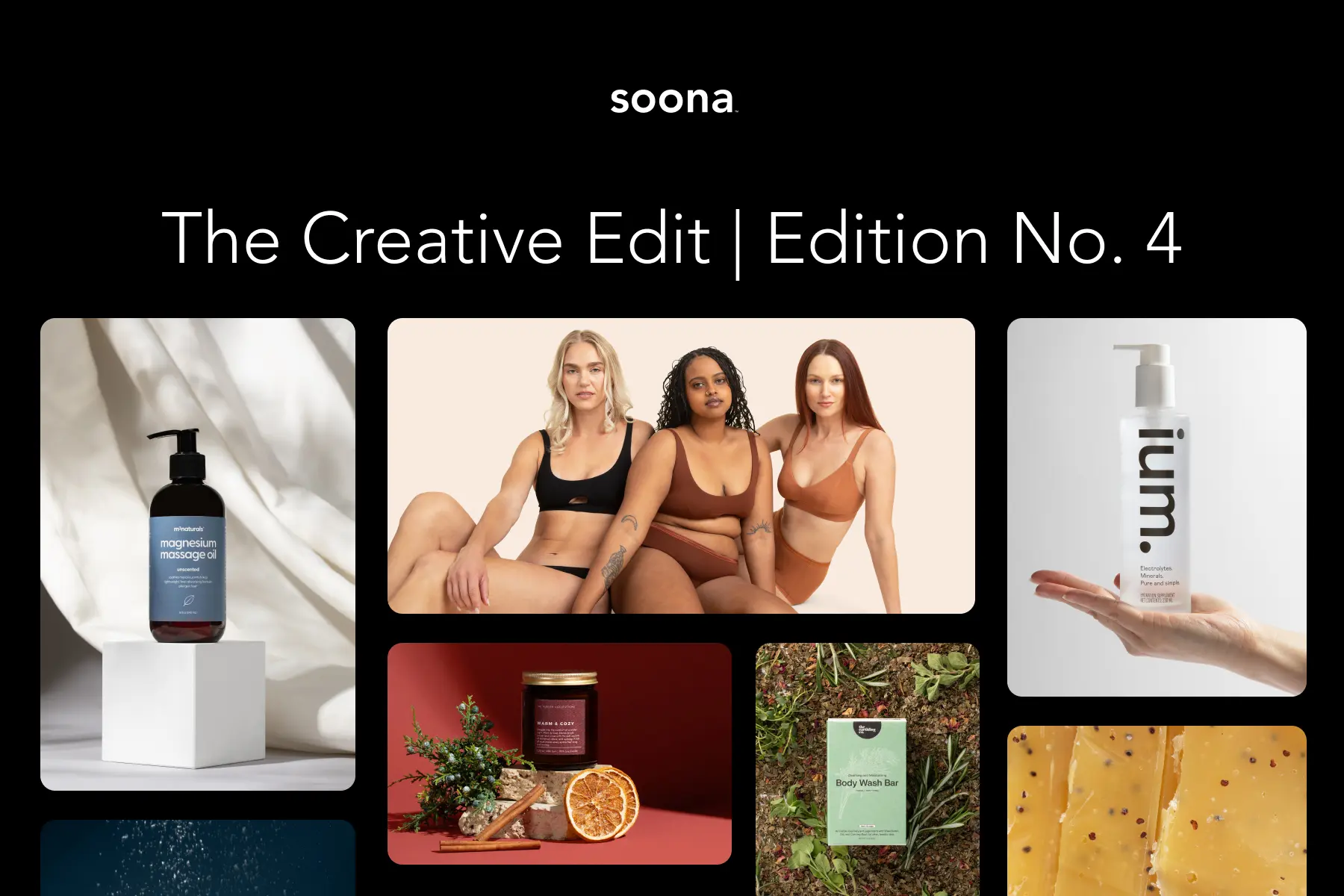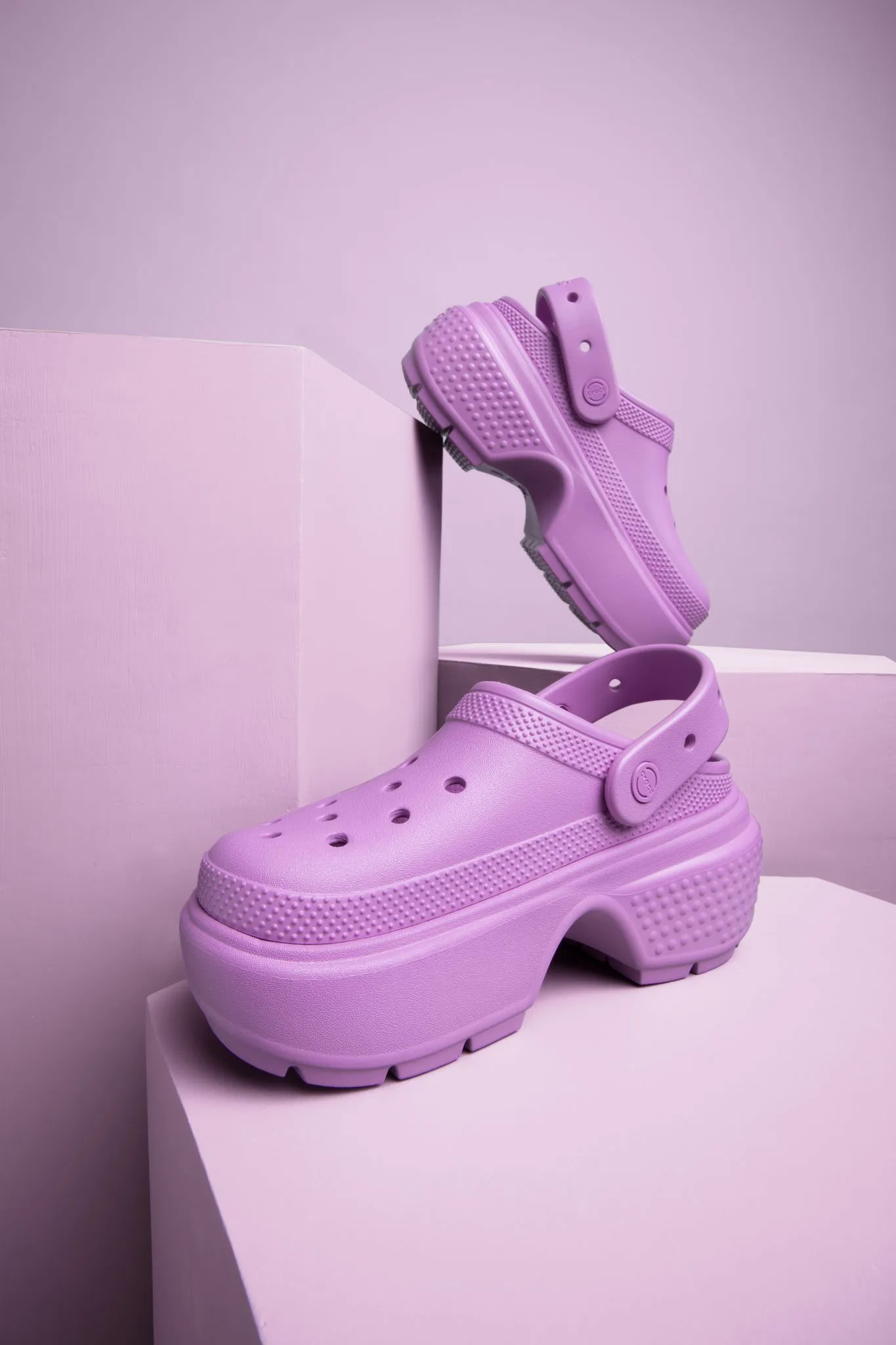We live in a visual world—which is precisely why high quality ecommerce product photography can set you apart from a sea of competitors.
Creating compelling ecommerce product photos is a surefire way to draw in your audience and maximize sales. Learning how to maximize your ecommerce product photography is essential to running a successful ecommerce business. We’re spilling the deets on everything you need to know to nail those scroll-stopping shots. Get ready to create unforgettable ecommerce product photography that will maximize your ecommerce product photography impact.
Importance of ecommerce product photography
The importance of creating high quality product photos can’t be understated. Here are a few reasons why you need unforgettable ecommerce photos:

Create virtual tangibility
Ecommerce photos are the closest thing to feeling and touching products online shoppers can get. Great ecommerce photos can breathe life into your products. Seeing a flat lay of your product can give a good overall sense of the thing.but a lifestyle image showing your product in use and in context? That’s priceless.

Bring the details to light
It’s the little things that matter. Full product shots don’t always capture or highlight the small details.providing cropped detail images or even full 360° images can ensure the small details are captured. Overlooked details can be the difference between a sale for you and a sale for your competitor. You invested a lot of time and effort into perfecting your product. set yourself up for the sale by including detailed shots in your product photos.
Build fruitful relationships
Loyalty and trust might seem difficult to achieve in an online ecommerce business, but they’re not. That's the power of great ecommerce photos. You should consider your ecommerce photos as part of the brand experience. Every time someone interacts with or views one of your product photos, it leaves a lasting impression of your brand. Consistent aesthetics and high quality product photos help build a relationship with your potential customers. That’s still true even if they don’t buy from you right away.
Make product info shareable and digestible
Making your products shareable is essential to expanding your reach via digital word of mouth. You instantly gain street cred when someone shares your product.the best high quality ecommerce product photos make customers want to share your product images.
Great ecommerce images also make product information easily digestible. It’s much easier to learn information about your product through visual storytelling versus sifting through a product description.typically customers will look through the images first. Then they’ll jump to the product description for specifics. If your ecommerce product images don’t do a good job of selling your products there’s a good chance that they won’t read the description.
Support marketing efforts
There are a handful of different types of ecomm photos which means there’s several ways to go about reaching your max product photo impact. Each photo type serves its own purpose and each type requires a different kind of finesse to get ’em to 💯.
Ready to sell more in your ecomm store? Build a shoot with soona >
How to use different types of product photos online
ready to make those ecommerce product shots stand out? here are some tips and tricks for each type of ecommerce photo:
Product-only
Product-only shots are perfect for when you want to showcase your product in all of its glory. The sole focus becomes your product. Flat lays are one of the most widely-known examples of product-only photography. Nailing your flat lay shots can give customers a better understanding of your product’s details.

Typically you’ll see product-only photos featuring the entire product. But don’t forget that cropping can be your friend too. Strategically cropping your flat lay photo can show off details that might otherwise be missed.
Product-only photos are most ideal for product pages and listings. You might occasionally use them in other contexts like social media or paid media, but for the most part, they’ll live on your product pages. This is your best chance at showing off your product to help your customers get the right understanding and expectations of your product.
By using high quality product images, you increase your chances of a conversion. Frame product-only photos in a way that makes your product the star of the show. That doesn’t mean you don’t need to restrict yourself to product-on-white images only. Play with backgrounds and tweak the positioning of the product to add visual interest. You can also create a series of product-only shots that demonstrates the product’s functionality.
Lifestyle/contextual
Lifestyle product photos can be massively engaging but in a way that’s totally different from product-only images.
This is especially true if you’re an online-only business. Take lifestyle product photos to bring life and movement to your ecommerce product photos. Lifestyle ecommerce photos should be your secret weapon.

Lifestyle photos do the heavy lifting to give your customers a glimpse at how much better their life will be when they purchase your products.
That lifestyle look facilitates imagination. And that’s when the magic happens—when customers can imagine themselves using or wearing your goods. Lifestyle product photos can take them from “I like it” to “I need it.”
One of the keys to nailing the lifestyle shot is creating an environment that isn’t distracting. The background (and the model or props you’re using) should embody the brand. Create lifestyle images that give the customers an idea of what daily use of the product looks like. Customers don’t just search for products based on utility. They also consider how the product and brand fit into their lifestyle. Showing your customer how it would fit into their lifestyle can be a gamechanger for them.
Plus, lifestyle product photos are multipurpose and can be used pretty much anywhere—on product pages, in paid media, and on your social media accounts.
Social media
One major aspect of running a successful and profitable ecommerce business is leveraging social media to show off your products and tell your brand story. and the means nailing those product shots.
High quality product photography is critical for your social media strategy and overall ecommerce conversion rate on those platforms. but that’s not the only reason you need to create scroll-stopping imagery.
It turns out that dwell time is a metric that some social media platforms are using to help calculate the relevance of your content. This means platforms like LinkedIn account for the fact that some people may consume your content without taking a tangible action (think: liking, sharing, commenting). On the flip side, some people who are tangibly engaging with your content may have hardly given it any glance at all.
Incorporating attention-grabbing ecommerce content on your social media feeds isn’t just good for your sales—it can also help drive organic reach on those platforms through increased relevance.

The ecommerce photos you create for social media don’t need to focus on just selling your product. Social media content is as much about creating a brand community as it is about generating ecommerce sales. You can drive long-term brand loyalty by creating a visually engaging community with your product shots.
Here are some ideas on how to create compelling and engaging social media product photos:
- Use carousels
- Provide value more often than you try to sell
- Incorporate lifestyle visuals to make it relatable
Paid marketing
Paid marketing includes a variety of sources: social media ads, search ads, display marketing, retargeting, and more.
The digital paid marketing world is highly competitive. You have to grab people’s attention, keep it, and convince them to perform the action you want.
Ecommerce product photos for paid marketing must be captivating and multifunctional. They have to sell the product and your brand simultaneously—all within seconds of exposure.
Your paid marketing has to be punchy, effective, and attention-grabbing. Your images need to stop the endless scroll and engage users to act on your CTA.
You’ll want to think outside the box when creating and staging photos for your paid media: incorporate props, change up the background, and include lifestyle images. Remember, the product photos you create for paid marketing should align with your overall paid marketing goals.
Ecommerce photography best practices
Understanding the role product photos play in a successful ecommerce business is just the first step. Here are some ecommerce photography best practices to help you nail those shots and maximize the impact of your product photography.
Get properly equipped
Step one is to gather your equipment.There’s a handful of things you might need during your product photoshoot
- Your preferred camera (a DSLR or mirrorless is best)
- Tripod
- Background or backdrop
- The product(s)
- Any props
- Good lighting
Prepare your products
It's time for the beauty of your products to shine bright. You want your products to look perfect—spotless, wrinkle-free, and blemish-free. Here are a few tools you can use to nail the perfect product look:
- Lint roller
- Iron
- Hand steamer
- Microfiber cloth
- Gentle cleaner
- White gloves
Pick the right backdrop
The backdrop plays a critical role in getting the perfect product shots. But don’t be afraid to be bold when choosing a background for your product photos—you don’t need to stick to the standard white backdrop. Get playful and experiment with subtle textures, color, or even patterns if it matches your brand tone and overall goals for the image.
Customize your images by changing the background color to fit whatever you sell, wherever you sell >
Perfect the lighting
We can’t stress enough just how important lighting is. Under (or over) exposure can lead to poor product photos, which can be a real bummer especially when you set aside hours for prepping and shooting your products.
Play with the lighting to find a mood that works for your products. Not every product shoot needs clean bright light. You can easily switch up the vibes by setting up some ambient light—and adjusting the temperature of the light can completely change the way your product photo turns out. Use this to your advantage to emphasize your overall brand mood.
Style it
You can also use props to turn your high quality photos up a notch. your product is every bit worthy of shining on its own but sometimes adding in a few props can help your product shine.

Tell your product story to grab the attention of your ever-skimming audience. Find props that fit the theme of the product and your overall brand aesthetic. Here are a few examples of how props can enhance your photo:
- Adding unbranded fitness tech to athletic apparel photos
- Incorporating floral elements into beauty product flat lays
- Strategically placing food around kitchen tools
Find a photo editing app that fits your needs
Congrats on capturing that beauty of a shot. Now it’s time to do just a little bit of post-shoot editing. Editing apps come in two versions: desktop and mobile. Mobile apps are great for editing on the go, but desktop apps can give you a better look at all the fine details of the image when you’re editing. It might take a bit of trial and error to find an app that works best for your needs.
Optimize your ecommerce photos for SEO
SEO, or search engine optimization, is critical for ecommerce. Another way to maximize the impact of your ecommerce product photography is to make sure it’s formatted in an SEO-friendly way. There are a few different SEO components that you should consider when formatting your ecommerce images:
File names
Get specific with your names to help boost your on-page SEO rankings with your product photos. Choose an image file name that summarizes the subject of your photo. This helps search engines understand your product images and offer them to your target audience.
- ❌ - image011.jpg
- ✔️ - jane-crossbody-bag-red.jpg
Alt tags
Don’t skip adding alt text and tags to your image. This part of image SEO strategy goes hand-in-hand with naming images. Alt text and alt tags help tell the search engines what they’re looking at—even if the image doesn’t load properly. SEO best practice is to incorporate at least one product keyword in your alt text.
Image size
Have you ever navigated to a site only to find it loading annoyingly slowly? Chances are your customers don’t have the patience to sit through the loading process.
Make sure to compress and resize your ecommerce product images before loading them onto your site. Compressing your images will significantly reduce site load time and keep them on the product page for longer. Uncompressed images can increase your bounce rate as users navigate away from slow pages. A high bounce rate can hurt your search engine rankings because it signals to the search engine that you’re not adding value to your customer’s search.
Get started with professional ecommerce product photography
Great ecommerce photos can accomplish a lot: they inform. they describe. they give life. and they build trust. If you understand the importance of high quality ecommerce photography but don’t have the resources to create the visual content yourself, find a studio that can shoot the professional product photography for you. When you work with a studio like soona, you can rest assured your images will be ready to convert on every channel.
{{studio-ad}}
We live in a visual world—which is precisely why high quality ecommerce product photography can set you apart from a sea of competitors.
Creating compelling ecommerce product photos is a surefire way to draw in your audience and maximize sales. Learning how to maximize your ecommerce product photography is essential to running a successful ecommerce business. We’re spilling the deets on everything you need to know to nail those scroll-stopping shots. Get ready to create unforgettable ecommerce product photography that will maximize your ecommerce product photography impact.
Importance of ecommerce product photography
The importance of creating high quality product photos can’t be understated. Here are a few reasons why you need unforgettable ecommerce photos:

Create virtual tangibility
Ecommerce photos are the closest thing to feeling and touching products online shoppers can get. Great ecommerce photos can breathe life into your products. Seeing a flat lay of your product can give a good overall sense of the thing.but a lifestyle image showing your product in use and in context? That’s priceless.

Bring the details to light
It’s the little things that matter. Full product shots don’t always capture or highlight the small details.providing cropped detail images or even full 360° images can ensure the small details are captured. Overlooked details can be the difference between a sale for you and a sale for your competitor. You invested a lot of time and effort into perfecting your product. set yourself up for the sale by including detailed shots in your product photos.
Build fruitful relationships
Loyalty and trust might seem difficult to achieve in an online ecommerce business, but they’re not. That's the power of great ecommerce photos. You should consider your ecommerce photos as part of the brand experience. Every time someone interacts with or views one of your product photos, it leaves a lasting impression of your brand. Consistent aesthetics and high quality product photos help build a relationship with your potential customers. That’s still true even if they don’t buy from you right away.
Make product info shareable and digestible
Making your products shareable is essential to expanding your reach via digital word of mouth. You instantly gain street cred when someone shares your product.the best high quality ecommerce product photos make customers want to share your product images.
Great ecommerce images also make product information easily digestible. It’s much easier to learn information about your product through visual storytelling versus sifting through a product description.typically customers will look through the images first. Then they’ll jump to the product description for specifics. If your ecommerce product images don’t do a good job of selling your products there’s a good chance that they won’t read the description.
Support marketing efforts
There are a handful of different types of ecomm photos which means there’s several ways to go about reaching your max product photo impact. Each photo type serves its own purpose and each type requires a different kind of finesse to get ’em to 💯.
Ready to sell more in your ecomm store? Build a shoot with soona >
How to use different types of product photos online
ready to make those ecommerce product shots stand out? here are some tips and tricks for each type of ecommerce photo:
Product-only
Product-only shots are perfect for when you want to showcase your product in all of its glory. The sole focus becomes your product. Flat lays are one of the most widely-known examples of product-only photography. Nailing your flat lay shots can give customers a better understanding of your product’s details.

Typically you’ll see product-only photos featuring the entire product. But don’t forget that cropping can be your friend too. Strategically cropping your flat lay photo can show off details that might otherwise be missed.
Product-only photos are most ideal for product pages and listings. You might occasionally use them in other contexts like social media or paid media, but for the most part, they’ll live on your product pages. This is your best chance at showing off your product to help your customers get the right understanding and expectations of your product.
By using high quality product images, you increase your chances of a conversion. Frame product-only photos in a way that makes your product the star of the show. That doesn’t mean you don’t need to restrict yourself to product-on-white images only. Play with backgrounds and tweak the positioning of the product to add visual interest. You can also create a series of product-only shots that demonstrates the product’s functionality.
Lifestyle/contextual
Lifestyle product photos can be massively engaging but in a way that’s totally different from product-only images.
This is especially true if you’re an online-only business. Take lifestyle product photos to bring life and movement to your ecommerce product photos. Lifestyle ecommerce photos should be your secret weapon.

Lifestyle photos do the heavy lifting to give your customers a glimpse at how much better their life will be when they purchase your products.
That lifestyle look facilitates imagination. And that’s when the magic happens—when customers can imagine themselves using or wearing your goods. Lifestyle product photos can take them from “I like it” to “I need it.”
One of the keys to nailing the lifestyle shot is creating an environment that isn’t distracting. The background (and the model or props you’re using) should embody the brand. Create lifestyle images that give the customers an idea of what daily use of the product looks like. Customers don’t just search for products based on utility. They also consider how the product and brand fit into their lifestyle. Showing your customer how it would fit into their lifestyle can be a gamechanger for them.
Plus, lifestyle product photos are multipurpose and can be used pretty much anywhere—on product pages, in paid media, and on your social media accounts.
Social media
One major aspect of running a successful and profitable ecommerce business is leveraging social media to show off your products and tell your brand story. and the means nailing those product shots.
High quality product photography is critical for your social media strategy and overall ecommerce conversion rate on those platforms. but that’s not the only reason you need to create scroll-stopping imagery.
It turns out that dwell time is a metric that some social media platforms are using to help calculate the relevance of your content. This means platforms like LinkedIn account for the fact that some people may consume your content without taking a tangible action (think: liking, sharing, commenting). On the flip side, some people who are tangibly engaging with your content may have hardly given it any glance at all.
Incorporating attention-grabbing ecommerce content on your social media feeds isn’t just good for your sales—it can also help drive organic reach on those platforms through increased relevance.

The ecommerce photos you create for social media don’t need to focus on just selling your product. Social media content is as much about creating a brand community as it is about generating ecommerce sales. You can drive long-term brand loyalty by creating a visually engaging community with your product shots.
Here are some ideas on how to create compelling and engaging social media product photos:
- Use carousels
- Provide value more often than you try to sell
- Incorporate lifestyle visuals to make it relatable
Paid marketing
Paid marketing includes a variety of sources: social media ads, search ads, display marketing, retargeting, and more.
The digital paid marketing world is highly competitive. You have to grab people’s attention, keep it, and convince them to perform the action you want.
Ecommerce product photos for paid marketing must be captivating and multifunctional. They have to sell the product and your brand simultaneously—all within seconds of exposure.
Your paid marketing has to be punchy, effective, and attention-grabbing. Your images need to stop the endless scroll and engage users to act on your CTA.
You’ll want to think outside the box when creating and staging photos for your paid media: incorporate props, change up the background, and include lifestyle images. Remember, the product photos you create for paid marketing should align with your overall paid marketing goals.
Ecommerce photography best practices
Understanding the role product photos play in a successful ecommerce business is just the first step. Here are some ecommerce photography best practices to help you nail those shots and maximize the impact of your product photography.
Get properly equipped
Step one is to gather your equipment.There’s a handful of things you might need during your product photoshoot
- Your preferred camera (a DSLR or mirrorless is best)
- Tripod
- Background or backdrop
- The product(s)
- Any props
- Good lighting
Prepare your products
It's time for the beauty of your products to shine bright. You want your products to look perfect—spotless, wrinkle-free, and blemish-free. Here are a few tools you can use to nail the perfect product look:
- Lint roller
- Iron
- Hand steamer
- Microfiber cloth
- Gentle cleaner
- White gloves
Pick the right backdrop
The backdrop plays a critical role in getting the perfect product shots. But don’t be afraid to be bold when choosing a background for your product photos—you don’t need to stick to the standard white backdrop. Get playful and experiment with subtle textures, color, or even patterns if it matches your brand tone and overall goals for the image.
Customize your images by changing the background color to fit whatever you sell, wherever you sell >
Perfect the lighting
We can’t stress enough just how important lighting is. Under (or over) exposure can lead to poor product photos, which can be a real bummer especially when you set aside hours for prepping and shooting your products.
Play with the lighting to find a mood that works for your products. Not every product shoot needs clean bright light. You can easily switch up the vibes by setting up some ambient light—and adjusting the temperature of the light can completely change the way your product photo turns out. Use this to your advantage to emphasize your overall brand mood.
Style it
You can also use props to turn your high quality photos up a notch. your product is every bit worthy of shining on its own but sometimes adding in a few props can help your product shine.

Tell your product story to grab the attention of your ever-skimming audience. Find props that fit the theme of the product and your overall brand aesthetic. Here are a few examples of how props can enhance your photo:
- Adding unbranded fitness tech to athletic apparel photos
- Incorporating floral elements into beauty product flat lays
- Strategically placing food around kitchen tools
Find a photo editing app that fits your needs
Congrats on capturing that beauty of a shot. Now it’s time to do just a little bit of post-shoot editing. Editing apps come in two versions: desktop and mobile. Mobile apps are great for editing on the go, but desktop apps can give you a better look at all the fine details of the image when you’re editing. It might take a bit of trial and error to find an app that works best for your needs.
Optimize your ecommerce photos for SEO
SEO, or search engine optimization, is critical for ecommerce. Another way to maximize the impact of your ecommerce product photography is to make sure it’s formatted in an SEO-friendly way. There are a few different SEO components that you should consider when formatting your ecommerce images:
File names
Get specific with your names to help boost your on-page SEO rankings with your product photos. Choose an image file name that summarizes the subject of your photo. This helps search engines understand your product images and offer them to your target audience.
- ❌ - image011.jpg
- ✔️ - jane-crossbody-bag-red.jpg
Alt tags
Don’t skip adding alt text and tags to your image. This part of image SEO strategy goes hand-in-hand with naming images. Alt text and alt tags help tell the search engines what they’re looking at—even if the image doesn’t load properly. SEO best practice is to incorporate at least one product keyword in your alt text.
Image size
Have you ever navigated to a site only to find it loading annoyingly slowly? Chances are your customers don’t have the patience to sit through the loading process.
Make sure to compress and resize your ecommerce product images before loading them onto your site. Compressing your images will significantly reduce site load time and keep them on the product page for longer. Uncompressed images can increase your bounce rate as users navigate away from slow pages. A high bounce rate can hurt your search engine rankings because it signals to the search engine that you’re not adding value to your customer’s search.
Get started with professional ecommerce product photography
Great ecommerce photos can accomplish a lot: they inform. they describe. they give life. and they build trust. If you understand the importance of high quality ecommerce photography but don’t have the resources to create the visual content yourself, find a studio that can shoot the professional product photography for you. When you work with a studio like soona, you can rest assured your images will be ready to convert on every channel.
{{studio-ad}}



